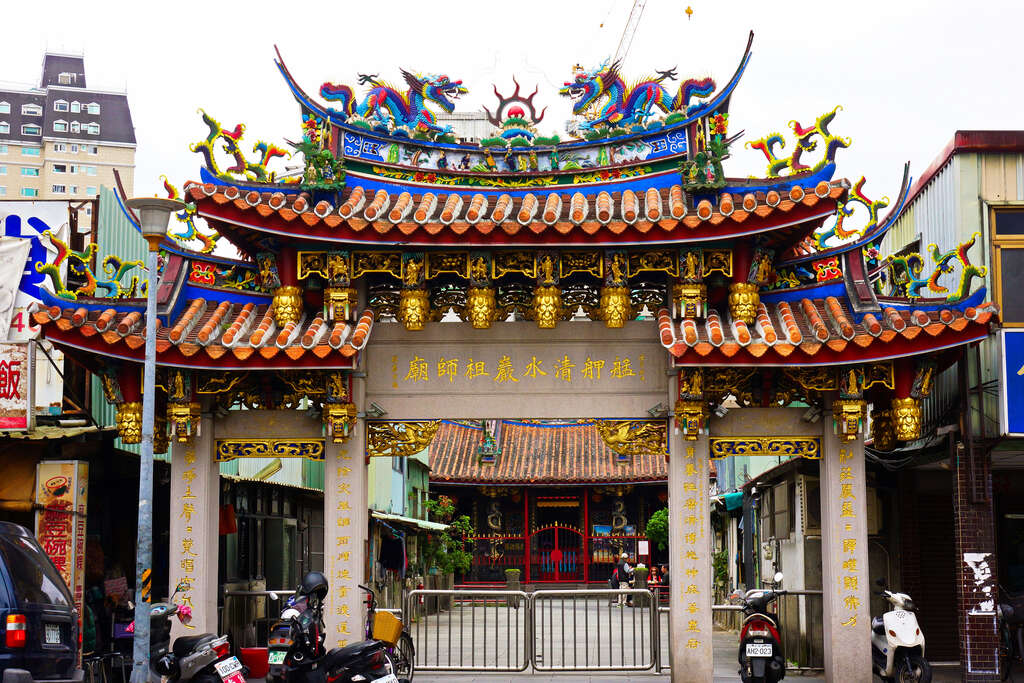Mengjia Qingshui Temple Introduction
Qing Shui Rock is located at the intersection of Kangding Road and Changsha Road. It is primarily dedicated to the worship of "Qing Shui Zu Shi," hence it is referred to as Qing Shui Rock or Qing Shui Yan, and it is also known as the Zu Shi Temple. Qing Shui Zu Shi, known in Taiwanese folk tradition as Zu Shi Gong, Wu (Black) Mian Zu Shi, Peng Lai Zu Shi, and Luo Bi Zu Shi among other names, was a person from the Northern Song dynasty, born in Fujian Province. His common names vary in legend, including Chen Zhao, Chen Ying, and Chen Zhao Ying. He practiced Buddhism and sought enlightenment from a young age, and once built a small monastery for cultivation in the mountain rocks of Peng Lai Mountain. Due to the clear and cold water found in the cave, the monastery was named Qing Shui Yan (Rock), which is the origin of the name "Qing Shui Zu Shi." According to legend, while Qing Shui Zu Shi was meditating in Qing Shui Yan, a ghost used a large fire to blacken the master's face, yet he remained unharmed, leading to the name "Wu (Black) Mian Zu Shi." The name "Luo Bi Zu Shi" comes from the legend that whenever a disaster is about to occur near the temple, the master's nose would automatically fall off to warn the residents and devotees. On the dragon and tiger walls of Qing Shui Yan, you can see brick sculptures of totems, and the couplet at the main entrance reads: "For Qing Shui, for Peng Lai, this place divides the Dharma realm; is a golden body, is an iron face, upon entering, one sees the true form," all of which are works of art from the 1817 renovation. Additionally, it is worth mentioning that there is an ancient plaque granted by Emperor Guangxu that reads "Gong Zi Zheng Ji."








